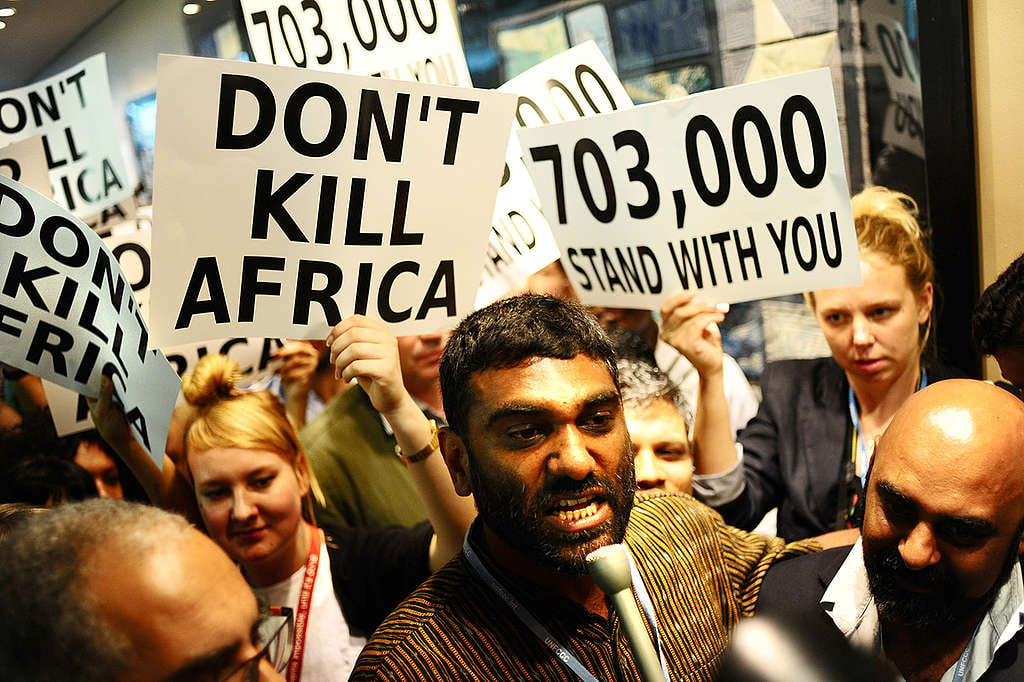The foul stench experienced by Gauteng residents in February 2021 is not a new occurrence, and it most certainly will not be the last. Minister Barbara Creecy has ensured that. Through her decision to further weaken the minimum emission standards (MES) for sulphur dioxide (SO2) in March 2020 and her continued leniency towards carbon majors Eskom and Sasol (despite her public professions otherwise), the minister has guaranteed a steady supply of fart-flavoured air coming your way.
The Department of Environment, Forest, Fisheries’ (DEFF) delayed response to the incident, combined with the outdated and unresponsive interface of the South African Air Quality Information System (SAAQIS), demonstrates our government’s incompetence at monitoring and evaluating the incidents that arise from their poor policy decisions. Numerous monitoring stations remained unable to detect unsafe levels of air pollution or were completely offline. The responsibility for this environmental incident, and the failure to act promptly to notify the public, falls squarely on MInister Creecy’s shoulders. There is no room for her to pass the buck, as she did with the R3-billion wasteful expenditure debacle.
Naming the wind as a culprit is an insult to South Africans’ intelligence. In 2018, DEFF rubbished a report released by Greenpeace Africa which revealed through satellite analysis that for 28% of the year, polluted air from Mpumalanga is carried by South Easterly winds which blow air towards Pretoria and Johannesburg. The wind simply unmasked the horror and human rights violations occurring in Mpumalanga on a daily basis.
The decision by DEFF to definitively absolve Sasol of responsibility is questionable. Their own press release states that this may be a result of cumulative emissions from surrounding industries; surely, Sasol would remain a contributing factor. The Mpumalanga region has had a persistent air pollution problem for decades.
A report released by Greenpeace in 2019 identified Kriel, Mpumalanga, with its cluster of coal-fired power stations, as the largest SO2 hotspot in Africa and the largest coal combustion-driven hotspot in the world. Despite this knowledge, the minister authorised the weakening of the MES for SO2 and continues to grant carbon majors Eskom and Sasol postponements from compliance. To make matters worse, they are granted these exemptions in silence, with the decision to grant Sasol its exemptions only being communicated to civil society 14 months after the fact.
Minister Barbra Creecy’s continued dismissal of evidence showing air pollution is responsible for 3,300 premature deaths annually in South Africa is indicative of the culture of disregard for low-income black lives. The issue which has plagued communities in Secunda and Kriel for decades only gained prominence in mainstream media once it created a nuisance for the privileged suburbanites of Gauteng. The outcry from this group prompted the minister to investigate Sasol’s Secunda plant, which proved fruitless. Apartheid still persists for some South Africans; only now it is economic apartheid that favours the high-income minority.
Once Sasol was cleared of responsibility for the environmental incident, all semblance of action from DEFF dissipated faster than the odour itself, and sure enough, as media coverage dwindles and public outrage loses its vigour, so will South Africans’ agency to enact change.
The decision by DEFF to narrow their investigation to Sasol as a possible source of the stench demonstrates that they are privy to information that necessitated this intervention. Greenpeace Africa demands transparency from DEFF in this regard.
Sasol may have been cleared of responsibility for the sulphur dioxide smell, but that does not absolve them from decades of damage done to the health and well-being of the surrounding communities; Sasol has long been linked to water and air pollution. While the Minister is secluded and removed from the harsh realities on the ground, she continues to tout the wonders of the fossil fuel industry. She has neglected to inform us that the cost of industrialisation is, in fact, our black lives.
 Get Involved
Get Involved
